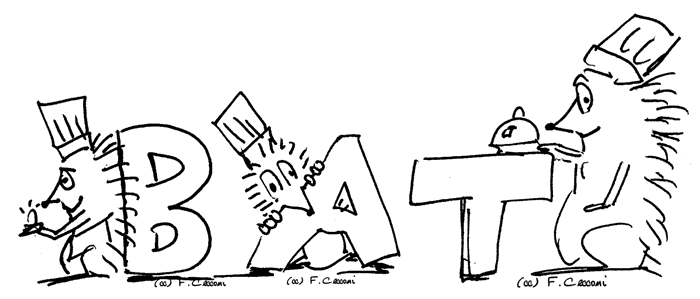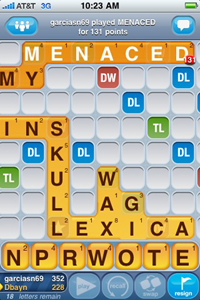We owe a lot to Noah Webster for making the spelling of American English relatively uniform and distinct from the English of Great Britain. To find out how much of a debt we owe to him, watch the video that follows.
Source: “Noah Webster Biosketch”, ThaNiff, YouTube
Although we have abandoned Webster’s notion of spelling reform, we haven’t abandoned our fascination with the language. Researchers have concluded that the spelling patterns of English are part of a “logical, rule-based language system.” The connection between the letters and the sounds is pretty straightforward, just not as easy as it once seemed in your early phonics lessons. For example, you probably learned that letters are linked to sounds and after learning three letter-sound correspondences, you could spell bat.

Source: Can I lend you a e? stevebkennedy, Flickr
If you moved to Finland and learned to write Finnish, which has a very predictable connection between the letters and sounds, all spelling might be as easy as bat. Instead you learned (or perhaps are learning) English, and its spelling is not always as easy as pie. In fact, the word pie has a vowel sound that can be spelled as
- -uy in buy,
- -y in cry,
- eye in eye,
- -igh in high, or
- -i as in pi.
So what makes English so difficult? We only have 26 letters. However, we have about 40 phonemes (sounds) and more than 250 graphemes (ways to spell those sounds). Take the alternate spellings for the phoneme /f/ as an example. The consonant sound of /f/ is spelled with one letter in fit, with the double letters -ff in puff, with a -ph in graph, and with a -gh in rough.
Another reason English is difficult is that it’s been influenced by several core languages such as Anglo-Saxon, Norman French (a dialect of Old French used in medieval Normandy), Latin, and Greek. Each language brought its own way of spelling sounds. As if multiple spelling conventions weren’t difficult enough, English borrowed other words and adopted their “foreign” spellings. Music words like a cappella, aria, and opera were borrowed from Italian. Food words like à la mode, hors d’œuvre, and crème brûlée were borrowed from French. You can probably guess which language loaned us armadillo, burrito, and bronco. Let’s not slight the Finnish, though, who loaned us sauna. Now you know why spelling bee contestants often ask, “What is the language of origin?”
When you think of spelling rules, the catchy “i before e, except after c and when sounding is like a as in neighbor and weigh" rule might come to mind. Review the following examples for this rule and see if you can find the exception below.
Examples:
- The student perceived the weight of the situation but found no reprieve in this knowledge.
- Her chief concern was to get well and not forfeit the game.
- Ancient civilizations may seem foreign to us, but they conceived ideas we still use today.
Did you notice that ancient defies the rule about “i before e, except after c”? There are other exceptions, but it’s still good to be aware of rules since most of the words these rules apply to will follow them.
Some experts say that the spellings of nearly 50 percent of English words are predictable based on sound-letter correspondences that you can learn. Another 34 percent of words are predictable except for one sound. This means that you can learn to be a better speller.
You already know some of the predictable patterns:
- Only one letter is needed to spell a short vowel sound, as in bat or bit.
- Another letter is needed to make a long vowel sound, as in bait or bite.
- If words end in a silent -e, like bite, you have to drop the -e before you add a vowel suffix like -ing to spell the word biting.
- For words that end in -y, you must change the final -y to -i before adding any suffixes, as when happy becomes happiness or puppy becomes puppies.

Source: Words With Friends Single Play High Score, Bill.Roehl, Flickr
If you have seen or played Scrabble and Words with Friends, you might know that players need to be in tune with spelling patterns. When they’re competing, they figure out that
- the sound /kw/ is spelled with a qu-, but if they don’t have a u, they can play qi, which is a word of Chinese origin meaning “breath” or “vital energies;”
- the consonants j and x are never doubled, which is a good thing because the game only provides one j and one x; and
- an s is a great letter for acquiring points, but if they can hear a new syllable on the plural word, they need an e to make the word plural, as in fixes and boxes.